The Law and the prophets were until John. Since that time, the kingdom of God has been preached and everyone is pressing into it (Luke 16:16). “Until John” is a very significant phrase, but one that seems to be mostly ignored.
Both the Law and the prophets were trumped by a greater message, the gospel of the kingdom. One is the prevailing message while the other is obsolete, having been fulfilled. One has heaven’s backing; the other doesn’t. One reveals God’s purpose in this present day, defining our assignment; the other does not.
A message creates a reality. The nature of the message we carry determines the nature of the reality we will live and minister in. Those who fully embrace our God-given assignment for the message of the kingdom will see the ever-increasing government of God displayed in the affairs of mankind. This is the only message that creates an environment suitable to the display of God’s love, His uncompromising purity and His unfathomable power. It remains the now word.
Which Gospel Are We Preaching?
The church has largely replaced the gospel of the kingdom with the gospel of salvation. It’s the beauty of the salvation message that makes it so easy to miss the fact that it is only a part of the whole message that Jesus gave us.
The gospel of salvation is focused on getting people saved and going to heaven. The gospel of the kingdom is focused on the transformation of lives, cities and nations through the effect of God’s present rule—this is made manifest by bringing the reality of heaven to Earth. We must not confuse our destiny with our assignment. Heaven is my destiny, while bringing the kingdom is my assignment. The focus of the kingdom message is the rightful dominion of God over everything.
Whatever is inconsistent with heaven—namely, disease, torment, hatred, division, sin habits and so forth—must come under the authority of the King. These kinds of issues are broken off of people’s lives because inferior realms cannot stand wherever the dominion of God becomes manifest. As we succeed in displaying this message, we are positioned to bring about cultural change in education, business, politics, the environment, and the other essential issues that we face today. This creates a most unusual phenomenon: the fruit of revival becomes the fuel of revival. And as long as we stay true to the message, the movement increases unto reformation.
The kingdom is the message we’re to carry forth into the nations of the world (Matt. 10:7; Acts 18:31). Our message is Jesus, who demonstrated what His world is like through words and actions.
There is no sickness in heaven. When the kingdom is manifest in a person’s body, he is healed (Matt. 4:23.) There are no demons in heaven, which is why deliverance is normal when Jesus touches people (Matt. 12:28.) It’s all about what His world looks like and how that reality can affect this one. The kingdom of God is in the unseen realm and obviously is eternal (2 Cor. 4:17.)
Perception is vital, so live with the realization that faith sees. Our conversion opens up that capacity to us all. “Unless one is born again he cannot see the kingdom of God” (John 3:3). The impact of His kingdom in the here and now goes beyond these two illustrations, having effect on every area of life—both internally (soul) and externally. The point is that the kingdom is to be preached and displayed so that all might know of His goodness in this life. Jesus illustrated this perfectly.
When Heaven Was Silent
Why did Jesus say, “Until John”? Why didn’t He say, “Until Jesus”? Because John was the one who broke heaven’s silence with the message of the kingdom. Before John the Baptist came on the scene, there were 400 years without one word from God. Heaven was silent. No visions, dreams or prophecies. Nothing. Four hundred years of absolute silence, and then came John.
The Holy Spirit is not carelessly highlighting this detail that the Law and the prophets were until John because it was John who first declared, “Repent, for the kingdom of heaven is at hand!” (Matt. 3:2). John was the one who announced the shift in heaven’s focus.
There is another place in Scripture where 400 years is unusually significant. Understanding the first mention of this phrase, “400 years,” will help us understand its importance in this case. Israel lived in Egypt as a nation of slaves for 400 years. And then the divine moment came when everything changed. It was when the blood from a lamb was put on the doorpost of each Jewish home on the night specified by God. The angel of the Lord came and released Israel from their slavery in Egypt to their destiny as a promised-land people.
In one moment, they went from being slaves to being free, from absolute poverty to possessing the wealth of the most prosperous nation in the world. It happened in a moment. The first mention of the phrase “400 years” resulted in the rescue of a people and the formation of a nation, Israel.
This was the redemption of God’s people. In the time of John the Baptist, God announced the rescue and creation of a new nation, declaring, “It’s a new day!” This time it would be a nation formed in the Spirit through conversion, including people from every tribe and tongue on the planet. For the first time since Genesis 1, there would actually be a “new creation” (2 Cor. 5:17), which is a people “born of the Spirit” (John 3:6-8).
That is exactly the message of Jesus in Luke 16:16. It’s a new day! The new day is marked with a new message. One message is over, and another has begun. When John the Baptist came forth, it was even more significant than deliverance from 400 years of slavery under Egypt. That deliverance dealt with the nature and potential of mankind, but John’s pronouncement changed everything.
The Message of the Kingdom
Jesus made the amazing statement, “Now the kingdom of God is being preached and everyone is pressing into it” (Luke 16:16). Is it possible that the nature of the message determines the size of the harvest? He did say “everyone”! While I do not believe in Universalism, where everyone eventually ends up in heaven, the message of the kingdom has a greater reach than I previously thought possible.
This is the message: “His dominion is everlasting. It is now. Jesus’ life demonstrated His dominion over everything that was inconsistent with God’s will.”
Don’t skip over the bigger promises of Scripture simply because they are hard to believe because of their size. Whenever He declares something this big, He’s hoping to capture people’s hearts, making it impossible for them to be satisfied with mediocrity.
The promises are there, in a sense, waiting for adoption. Instead of trying to figure out the season for the promises to be fulfilled, why not come before God and see if God might want to fulfill them in our time? After all, how many times did the disciples get the timing right in their understanding of God’s prophetic promises? I don’t consider myself any better than they were.
These promises are not given to us to help us to know the future as much as they are given to create hunger for what might be. The promises of God are clearly seen when the people of God get hungry and cry out to God for their fulfillment. This is exactly what Daniel did in reading Jeremiah’s prophecy (Dan. 9:2-6.) When you declare the right message, you create the atmosphere where everyone is able to press in. No matter the need, there is an answer now. The right message marries the truth of Jesus as the desire of the nations with the nations themselves. The right message changes the atmosphere to make the manifestation of His dominion realized. Perhaps this is the context in which the irresistible grace of God is embraced, thus fulfilling the desire found in the heart of every person alive.
Bill Johnson is a fifth-generation pastor, senior leader of Bethel Church in Redding, California, and author of God Is Good and many other books.
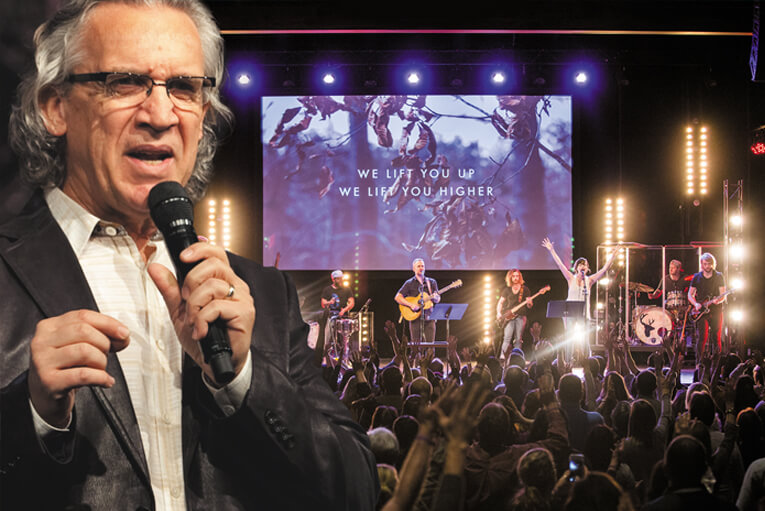


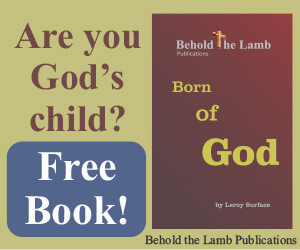

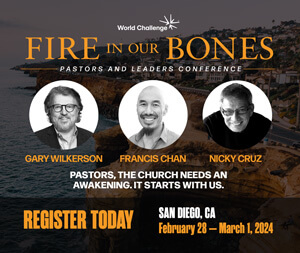
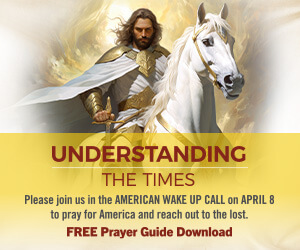

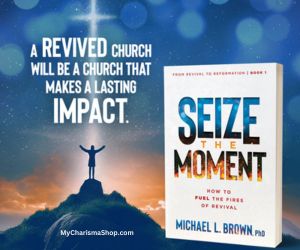







Leave a Reply
You must be logged in to post a comment.